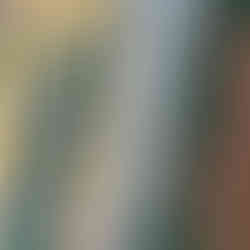The production and handling of waste are complex problems to tackle and lead to a range of negative environmental and social outcomes. With thousands of students, faculty, and staff on campus and visitors coming and going everyday, Dartmouth is a big producer of waste. As stated in the 2017 Our Green Future Report, Dartmouth’s waste system and materials handling approach provide valuable opportunities for the College to improve its efficiency and reduce environmental impacts. The Report details several principles and goals pertaining to waste, such as reducing the total amount of waste that is produced and increasing the fraction of waste that is diverted from landfill and recycled. Still educating all these different users about how to reduce waste and sort waste correctly into recycling, compost, and landfill isn’t easy and takes creativity and people power.
In the past year, many Dartmouth students, and specifically, many first year students, have worked toward waste solutions on campus. Last year, two first-year programs, the EcoReps program and the Sustainability Action Workshop (SAW) program addressed waste issues as their project focuses.
The EcoReps carried out a waste awareness campaign using art as a way of connecting Dartmouth students to campus waste issues. The group of 10 first-year students coordinated and carried out an art exhibit called Garbáge: An Artistic Wasteland. The exhibit featured work by students who used waste as an artistic medium. These art pieces ranged from extravagant paintings to delicate sculptures that engaged students in discussions around waste. The range of media and content across the artwork reflected what EcoReps see as a broad range of influences and implications of the waste system. The EcoReps were excited by the level of engagement that the show had on its opening night, and are hopeful that these and other efforts can educate students and inspire them to be more conscientious of their personal waste production. This exhibit occurred in conjunction with trainings and a communications campaign on proper sorting, a zero-waste challenge to students, and a food waste audit to offer another visual of how much waste we produce!
Another group, the Sustainability Action Workshop (SAW) program, recognized that plastic bag use on campus creates a significant amount of non-recyclable plastic waste. Over the course of the spring term, SAW students conducted research to identify ways to reduce plastic bags in Dartmouth's waste stream, including sending an electronic survey to the student body that received over 500 responses. At the end of the term, SAW presented their findings and a proposal to reduce plastic bag availability to staff from Dartmouth Dining and Facilities, Operations, and Management. The outcome? You’ll definitely be seeing fewer plastic bags on campus this fall and more reusable bags for carrying to-go food to the library.
At Dartmouth, we are committed to working toward operational changes like those related to waste, and first-year students have many opportunities to get involved in these institutional changes. If you are interested in learning about campus sustainability and creating positive changes here at Dartmouth, sign up for the Ruckus listserv to be informed about programs like EcoReps and SAW this fall!








